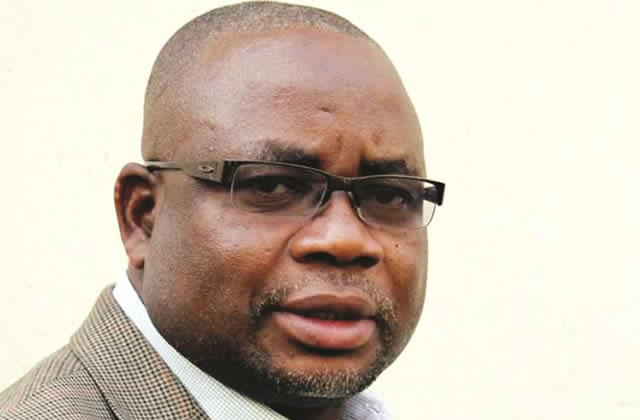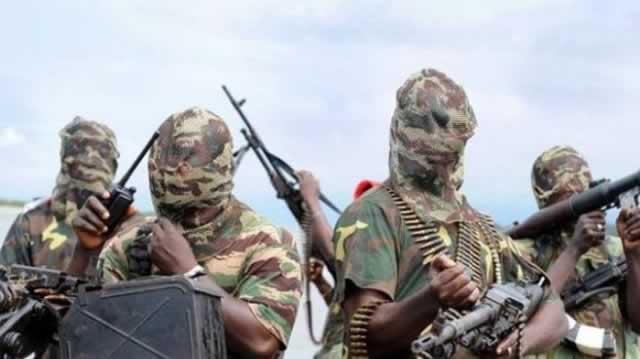2014 an eventful year

Opinion Saul Gwakuba Ndlovu
LAST year has gone with, we hope, its many coarseness some of which were undoubtedly quite shocking to the entire decent world. Some happenings continued from previous years and are still giving the governments of the respective concerned countries and the world at large sleepless nights.Events that horrified the world included the disappearance of a Malaysian passenger aircraft over or into the Indian Ocean. That was followed by the shooting down over the war-torn Ukrainian territory of another Malaysian passenger aeroplane. The third aircraft tragedy involved the crashing into the Java Sea of another aircraft flying from Indonesia to Malaysia, an accident which occurred about 48 hours before the 2014 Julian calendar year expired.
Other tragedies were the collapsing of a TB Joshua’s Pentecostal church-owned building in Lagos, the violent abduction of more than 200 school girls by Boko Haram in Nigeria’s north-eastern region of that terrorism-ridden nation.
Bloodshed continued unabated in the Sudan and Southern Sudan, in Somalia and the Democratic Republic of Congo (DRC), the Central African Republic, Libya, Israel and Palestine, the Ukraine and in isolated parts of South America, Afghanistan and Pakistan.
In Zimbabwe, we experienced a unique political internal self-cleansing campaign by Zanu-PF initiated and led by the First Lady Cde Grace Mugabe.
The no-holds barred campaign claimed the political scalps of former senior Zanu-PF officials among whom were the then most revered Vice President of Zimbabwe, Cde Joice Mujuru, and a number of others.
At the time of writing this article (December 30, 2014), the dust had settled down, and the Zanu-PF newly elected as well as the President-appointed leadership was assuming either its party or its government positions and responsibilities.
As for the air tragedies we can only say that what occurred could have been surely avoided had the world’s modern meteorological technology been used to establish whether or not the skies were safe for passenger aircraft to fly at the relevant respective times.
The aircraft shot down over the Ukraine should not have taken the most unnecessary risk of flying over a country bristling with highly dangerous weapons, including anti-aircraft rocketry. It is not easy to understand, let alone to appreciate, why that aeroplane was flown along that particular route at a time when Kiev was at war against secessionists.
The Nigeria terrorism experience is an attempt by Boko Haram to revive the outdated Islamic military campaigns that invaded and routed the Christian Byzantine Empire, northern Egypt and the whole of the Maghreb region and subsequently large West African territories.
We all know how the Islamic armies under the command of a brilliant but ruthless group of Mecca-born generals invaded and subdues the then predominantly Christian Syria in only two years. Eastwards the Islamic army reached the Indus River.
We also know how Islamic forces invaded and took over Alexandria, another Christian centre, and swept westwards along the Mediterranean Sea, and southwards into Christian Nubia, plundering temples and replacing them with Mosques.
Today, the 10 or so million Coptic Christians of Egypt live virtually at the mercy of the radical Islamic Brotherhood members of that formerly Christian nation.
Boko Haram would like to turn Nigeria into another such nation. It is being very dangerously short-sighted for the African continent to remain as silent on this matter and the occurrences in Kenya and Nigeria as if it is unaware of them.
The Nigerian situation is worsening daily as the number of people killed or raped by Boko Haram rises. The government of that most populous African nation is obviously either unable or unwilling to deal with this politico-cultural menace. It is festering.
Meanwhile, Cameroon is certainly meeting Boko Haram head-on. Are other members of the Economic Organisation of West African States (Ecowas) unwilling or unable to get involved to deal with Boko Haram once and for all?
The less involved they are, the more Boko Haram grows to be a grave cause of insecurity to the whole region, and sooner than later to the entire African continent.
An important lesson we should learn from terrorist organisations is that power whatever power: (economic, cultural as is the case with Boko Haram, El Queda, El Shebaab, political or social) is very dangerous if it is in the hands of a person or people with warped minds.
They will use it for destructive purposes in some pseudo philanthropic cause such as religion, political or economic achievement.
A look at some South American states shows us an extremely frightening development whereby some policemen co-operate with die-hard drug peddlers, an indication that the criminals are effectively represented in the national police force.
Can we rule out that drug peddlers are represented also in the government’s other departments?
The case of students who were arrested by the police for demonstrating against the government, and were later handed over to a group of well known criminal drug peddlars who murdered them and then burned their bodies is an example of corruption in its worst form.
It is a blood curdling Satanic crime for which those responsible must be punished most severely and publicly too. The most appropriate punishment for those beastly criminals is death by hanging at a public place such as a soccer pitch.
To sentence them to life imprisonment would result in their being maintained at the expense of the taxpayers among whom are parents, brothers, sisters, aunts and uncles as well as friends of the callously killed students. Could we call that justice?
The eastern DRC is still in a turmoil in spite of United Nations peace-keeping forces in the area. Destruction of property and human life continues, so does looting and raping.
Some parts of that country have been experiencing such a life since that vast land was known beyond its borders in the fifteenth century. The subsequent period when the Belgian monarch, Leopold II, ruled it as his personal fief spread and actually regularised terror, making it an integral part of its social culture.
King Leopold’s time followed the ravages of the slave trade by the Arabs who were using Khartoum in Sudan as their regional base. They played havoc within that incredibly rich country in terms of natural resources.
The Arab slave traders had come hard on the heels of Portuguese adventurers some of whom had feebly tried to colonise the coastal region of that country, but ended up colonising Angola which lies to the south of that troubled nation which at the beginning of the 20th century had more than 6,000 chiefs.
Inter-communal conflicts were very common among the people of that vast country. Its people belong to four linguistic groups: the Bantu, the Nilotics, the Sudanics and the Pygymies (Abatwa).
What type of government can bring about stability and peace to the DRC?
The solution lies in a federal system, with each component state enjoying a fairly high degree of autonomy. The DRC could continue as a unitary state but administered federally.
The United States could be used as a model of such a state. We now come to Zimbabwe where the ruling party, Zanu-PF, underwent a great deal of change in its leadership in December last year. A lot of finger-pointing occurred before the party’s congress, with factionalism being the core of the accusations.
The major call was for all party members to show loyalty to the organisation and to its highest leader President Mugabe to whom power was given to appoint some party officials to certain positions instead of them being elected as was the case prior the recent congress.
In addition to factionalism, the organisation’s provincial leadership and some war veterans passed votes of no confidence on a number of former senior officials. They were criticised for corruption, sheer inefficiency or for fanning factionalism.
Those three, corruption, factionalism and inefficiency, loomed large at the congress displacing the country’s poor economic condition.
The votes of no-confidence came as a shock to many Zanu-PF officials, some of whom lost their positions as a result. They showed how ill-advised it is to take one’s position for granted in a national organisation, and also that power is in the people’s hands and not in those of the elected leaders.
However, those accused of whatever should have been given opportunities to at least explain their actions or lack of actions or to defend themselves publicly without let or hindrance. It is not morally justifiable to hound a public servant or leader out of a position by merely applying numerical pressure by means of demonstrations.
In a democratic and free society, every accused person must be protected by law to explain or defend themselves.
One is not guilty until one is so found by a duly constituted law court
The Zanu-PF new leaders, meanwhile, should prioritise their responsibilities and put their shoulders to the task so that come 2018 when the next general elections are due, they will have changed their respective constituencies for the better. The new year must bring new ideas.
Saul Gwakuba Ndlovu is a retired Bulawayo-based journalist. He can be contacted on cell 0734328136 or through [email protected]











Comments